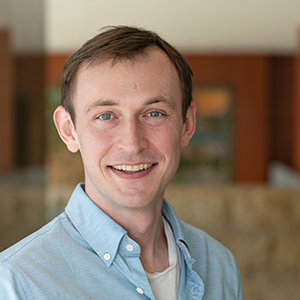The research community at the Institute includes visiting scholars, consultants, economists, research analysts, and research assistants. These scholars bring a diversity of backgrounds, interests, and expertise to research that deepens our understanding of economic opportunity and inclusion as well as policies that work to improve both.
As a Ph.D. student in the University of Minnesota’s mathematics department in the mid-1990s, Marianne Bitler found herself thinking about politics and policy in addition to math. “I was the person who would be listening to Fresh Air while doing my complex analysis homework and thinking, ‘I’d rather be studying that,’” she said.
So, she moved first to the Federal Reserve Board as a research assistant and then to the economics department at MIT, where policy-focused economists were talking about the controversial 1996 welfare overhaul. This reform restricted welfare benefits and encouraged low-income parents to work. Three senior Clinton administration officials resigned in protest when it was signed, arguing that the bill would hurt children. “We were getting data, though,” Bitler recalled, “that would let us answer questions about whether there were that many more kids in poverty.”
Over the last 20 years, Bitler, now a professor of economics at the University of California, Davis, has answered more questions about how welfare reform has and has not succeeded than almost any other researcher. Her work has explored how welfare reform changed marriage, divorce, and living arrangements and hindered women’s access to medical care. She has also spotlighted the varied economic experiences of women affected by policy changes. Connecticut’s program, for example, increased average income yet made some women poorer. And Bitler has shown how the shift toward safety-net programs available only to people who are working leaves families more vulnerable to recessions, when they may not only lose a job but also many important public benefits.
Bitler’s career also mirrors the trend toward visibility and inclusion of LGBTQ+ research and researchers in economics. Bitler, a bisexual woman, recalled when she was a graduate student that “there were queer people in economics…but research was hamstrung by the fact that you couldn’t identify someone’s sexual orientation or gender identity or sexual behavior or sexual attraction in data.” As datasets improved and laws relating to queer families changed, research on economic outcomes for LGBTQ+ people, such as family dynamics, income gaps, and wage/hiring discrimination, grew—and so did the community of queer economists.
The maturation of research and inclusivity in the profession need not go hand in hand, Bitler emphasizes, but they can. Mentoring sessions organized by a new American Economic Association committee and the ability—helped by the necessity of Zoom seminars—to meet regularly with LGBTQ+ economists, Bitler said, “have been huge for community-building.”






